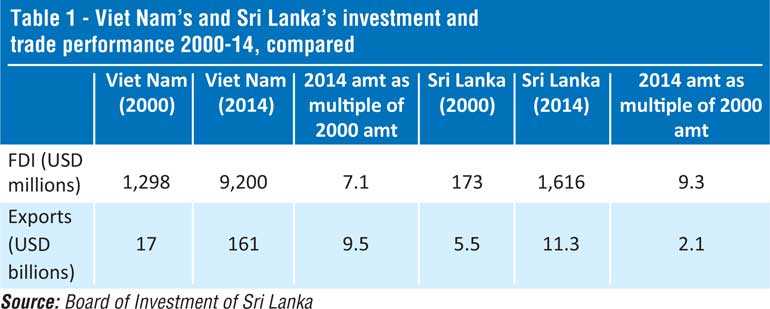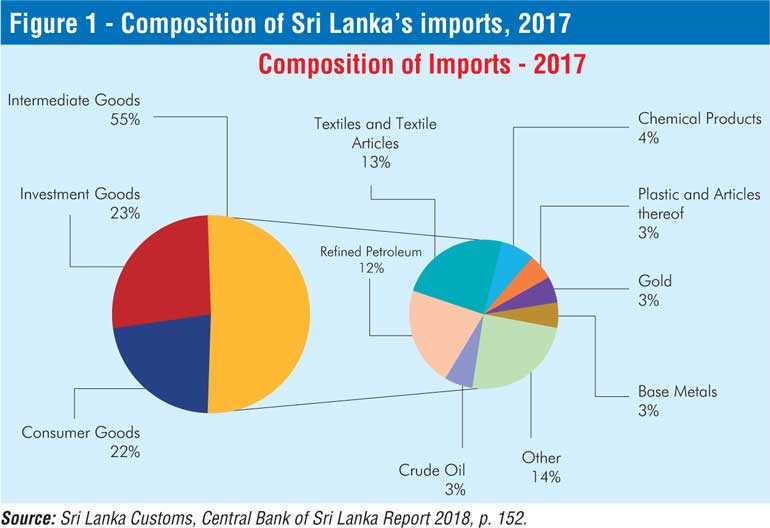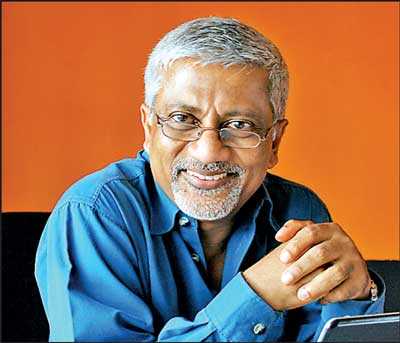Wednesday Feb 18, 2026
Wednesday Feb 18, 2026
Friday, 21 December 2018 00:00 - - {{hitsCtrl.values.hits}}



I believe there is broad consensus that we in Sri Lanka face serious problems. We live beyond our means, exporting a few simple items but importing many things worth more than what we earn from the export of goods and services. This results in over-dependence on others, in the form of loans, aid and investment. We expect a lot of services to be supplied by government, including secure and low-stress employment with life-time pensions, but do not support a tax regime that could pay for them. We are growing old before we get rich.
 |
Professor Rohan Samarajiva |
The consensus is much narrower on what the solutions are and whether scholars, within the university and outside, and the research they produce, have a role to play. One could even say that ideological positions have hardened on many key issues such as economic strategy to a point where it is not possible even to develop a consensus on a common research agenda.
But before we get to that we must note how much progress has been made in the past four decades.
How far we have come
We have come a long way from when doctors were treating young children showing symptoms of Marasmus and Kwashiokor in Borella in 1973 as a result of misguided economic policies.
We are about to provide grid electricity to all homes. Like many in my generation, I grew up for some time in a home without electricity or a telephone. Those days, for most of our people the most valuable asset was a sewing machine. It’s what they took to the pawn shop in an emergency. Since 2012-13, there have been more homes with refrigerators than those with sewing machines. According to the 2016 Household Income and Expenditure Survey, 52.9% of households owned refrigerators, versus 39% with sewing machines.
That’s just household assets. A reliable indicator of how well people live is the percentage of their overall expenditure they spend on food. A statistician by the name of Ernst Engel came up with a law (an observed correlation) which said that as people become wealthier the percentage they spend on food declines. Not too long ago, in 1990-91, we were on average spending two-third of our household expenditures, or 64%, on food. In 2016, it was 34.8%, just over one-third. This is irrefutable evidence of a general rise in living standards.
Women now live 78 years on average; men live 72. Back in 1945-47, men lived longer on average than women, to 46.8 years. Women had an average life expectancy of 44.7 years. We are living better and longer, according to the evidence.
Having established that we have made progress, I will now turn my attention to some of the challenges we face.
Improving export performance and employment
The British did not bequeath us a dynamic economy. It was, as many in my age group learned in school, based on the export of tea, rubber and coconut. Little value addition was done. Most government revenues came from taxing foreign trade. Reliance on commodity exports made the economy vulnerable to economic cycles. In 1952, a dramatic fall in rubber prices by over 30% because of the end of the Korean War led to the Rubber-Rice Pact with China, not some kind of grand gesture of non-alignment.
But today, we are less dependent on commodities. Service exports (if we include remittances from those who work abroad, technically a form of trade in services) yielded $ 14.3 billion in 2017, higher than the $ 11.4 billion earned from goods exports, of which agriculture and mining comprised only 25%, according to the 2017 Annual Report of the Central Bank. Remittances, which none other than the families that generate them appear to be proud of, brought in $ 7.2 billion. Contrary to entrenched perception, more men than women are now engaged in this form of service export and the proportion of skilled workers is increasing. Tourism was the biggest source of conventional service earnings, yielding $ 3.9 billion. Most of our rubber now goes out in the form of value-added tyres, gloves and such. It is second in value only to apparel among industrial exports.
Research priorities facilitating global engagement
Our economy has diversified and is less vulnerable to external forces than in the decades after independence. But the momentum achieved in increasing and diversifying exports was lost as a result of the insular policies of the past decade. Lack of attention to exports and the right kinds of foreign investment have led to greater dependence on borrowing, no longer available at concessional rates, leading to a different form of vulnerability that has to be carefully managed.
Comparison with Viet Nam, a country that is directly competitive with Sri Lanka in many areas such as apparel, business process management, and even tea is illustrative. Viet Nam’s distinctly superior performance in exports despite more or less similar increases in FDI over the 2000-2014 period shows that the right kind of FDI is what matters to exports, not just raw numbers.
The unemployment rate among the 20-29 year-olds is roughly three times the overall rate. They are looking for work, but are unwilling to take what is on offer. As the long lines for the Korean language exams showed vividly, they are not unwilling to work, or even wait in line overnight to qualify for work at acceptable rates of compensation. There are many different explanations. Some see a problem of values we have inculcated in our youth. Some blame parents. Others see a structural problem in that the economy does not produce the kinds of jobs that our young people want. Without robust export performance and diversification into high-value-added production of goods and services, it will not be possible to create the kinds of service-sector jobs our young people seem to want.
The cause is a structural problem in the economy: its inward orientation in the past decades. As a result we are not making available high-quality jobs. I believe we can produce such jobs only if we think bigger than a market of 20 million people with not very high purchasing power. Despite its history, Viet Nam has taken that route, locking in the external orientation through multiple bilateral and plurilateral trade agreements. It is a member of the WTO and of ASEAN, which is on the path to a single market. It is also part of CPTPP (the Trans Pacific Partnership that was resuscitated without the US) and RCEP (Regional Comprehensive Economic Partnership).
Conventional economic analysis, that I subscribe to, would suggest that we integrate our economy through trade agreements with as many countries as possible, especially with the Bay of Bengal region, which has six of the 10 fastest growing economies of world: Bangladesh, Bhutan, Cambodia, India, Myanmar, and Lao. And China is just on the other side of Myanmar and is a massive and still growing market. Joining the RCEP, which includes China, India and the entire ASEAN should be even better. If we can capitalise on our rightful place as the gateway to the region, we can create the jobs that will keep our children here.
But the evidence could be stronger. Vietnam, which has sought to integrate itself into global production networks through trade agreements provides strong evidence. I can show that countries that liberalise trade and create policy certainty prosper and that those that turn inward do not. But I can only speculate about what our young people really want. If we have this kind of evidence, we may possibly be able to elevate the current discussion on trade agreements above its present unsatisfactory, ideological and post-factual level.
Research priorities based on greater autonomy
However, given the polarised nature of policy discourse in Sri Lanka at this time, it may be useful to also identify research priorities based on different ideological positions. Even those who do not like increased trade and foreign investment, especially within the certainty provided by trade agreements, would have to accept that Sri Lanka has to decrease imports, if it is not willing to do what is necessary to increase exports. This import-restricting option was actually tried out by governments from 1960 onward starting with what were considered luxuries such as cars and reaching the peak in 1973-77, when imports of essential items such as building materials and even pulses and dried fish, the principal sources of protein at the time, were curtailed.
In the vastly more complex economy that exists today, the actions of the 1970s are impractical. Consumer goods are a small part of the country’s imports, as shown in the Figure below. The largest proportion is intermediate goods, needed for the production of other things, including exports. The reduction that is likely to have the most impact is refined petroleum and crude oil which amounted to 15% of the total imports in 2017.
The two main uses of petroleum imports are for transportation and the production of electricity. As can be seen from Figure 2, expenditures on petroleum imports have been rising over the years, with a step change in 2011, shortly after the end of the civil conflict.
This appears correlated with the spike in motor vehicle imports after the end of the conflict, as shown in Figure 3. A massive increase occurred soon after the end of the conflict, leading to a doubling of the stock by 2014. Luckily, the biggest increase was in two wheelers, which do not take up a lot of road space and consume less fuel. As current two-wheeler owners graduate to four wheels, congestion and fuel consumption should increase further.
So it would seem that those who want a more insular and independent country would be well advised to conduct research to reduce petroleum imports. The easiest way to do this would be develop transport systems that would rely less on imported petroleum. This could be in the form of vehicles powered by electricity, unless that results in importing still more petroleum products to produce electricity. The optimum solution, of course, is efficient public transport which is being worked on. The difficulties are enormous and the need for research and innovation high.
So here are research priorities for those wanting a more autonomous Sri Lanka: find ways to move people and goods around that minimise the need for imported fuel; find ways to produce more electricity using renewable sources.
Simply putting in more solar panels and installing wind turbines will not do. Our small grid cannot be balanced if we increase the supplies from these sporadic sources beyond around 25%. We will need to rethink the whole electricity system, possibly replacing it with a completely new producer-consumer system unlike any that exists today. That will require much research and innovation.
If that be too radical, a stop-gap solution would be to connect our small grid to the much larger Indian grid across the Palk Strait. That would allow us to increase the proportion of electricity drawn from sporadic sources without destabilising the grid, and to buy and sell electricity to and from India. But then, we would be back to Indophobia and fears of loss of autonomy, wouldn’t we?
Solutions
We need to have a clear understanding of the principal problems facing our society. I have explored in multiple aspects of the problem I consider the most important. There are others, such as our population growing old before we got rich. Many would argue that education, including higher education, is in crisis. Others would point to ethnic reconciliation or our unacceptable rates of child abuse. Underlying everything are mega issues such as global climate change and environmental degradation.
Once we recognise the challenge best suited to our specific skill sets, we then need to engage in rigorous research. That research then has to be taken into the public discourse that is today dominated by myths and falsehoods.
Given all politicians, according to Keynes, are governed by what they learned when in their twenties, some of us have to engage in the hard job of changing their obsolete mindsets:
…the ideas of economists and political philosophers, both when they are right and when they are wrong, are more powerful than is commonly understood. Indeed the world is ruled by little else. Practical men, who believe themselves to be quite exempt from any intellectual influences, are usually the slaves of some defunct economist. Madmen in authority, who hear voices in the air, are distilling their frenzy from some academic scribbler of a few years back. I am sure that the power of vested interests is vastly exaggerated compared with the natural encroachment of ideas. Not, indeed, immediately, but after a certain interval; for in the field of economic and political philosophy there are not many who are influenced by new theories after they are 25 or 30 years of age, so that the ideas which civil servants and politicians and even agitators apply to current events are not likely to be the newest. But soon or late, it is ideas not vested interests, which are dangerous for good or evil.
The President of the United States refuses to accept scientific consensus on climate change, relying instead on what he learned in his twenties. Most of our leaders revert back to the planned economy thinking of their youth. They refuse to accept the overwhelming consensus among economists that protectionism is counter-productive.
We must do these hard things, subjecting ourselves to the highest levels of quality control. Because the only thing worse than not being engaged with the policy process is its pollution by the introduction of bad research into it. Peer review is seen as the gold standard to prevent this, but it has many shortcomings. In the policy arena, it’s not always practical to wait for peer review to be completed. The policy window or opportunity can close before the peer review is completed. Sometimes we have to build peer review into the discourse itself.
In many applied fields we work with open systems. The levels of certainty and exactitude possible with inanimate objects of study within closed systems is not possible in these fields. The questions we ask and the assumptions we make are shaped by who we are and where we came from. Therefore, we must allow room for difference and debate in public discourse, even when based on research findings.